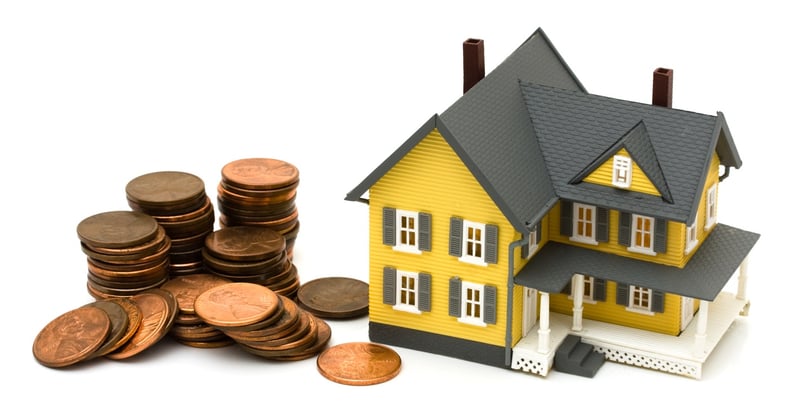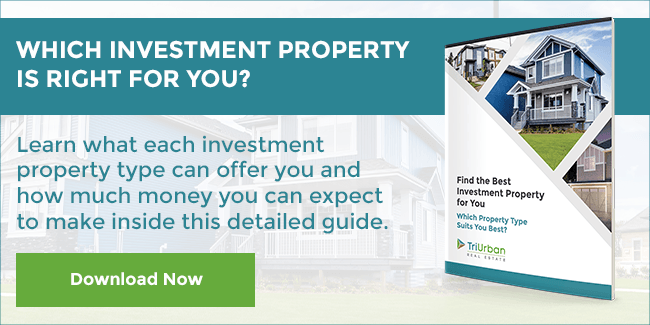 When planning for retirement, most people simply want to live as comfortably as possible. This means having some spending money aside from just their pensions or RRSP funds. There are all sorts of ways to do this but some, like the stock market, can be risky if you’re not an expert.
When planning for retirement, most people simply want to live as comfortably as possible. This means having some spending money aside from just their pensions or RRSP funds. There are all sorts of ways to do this but some, like the stock market, can be risky if you’re not an expert.
Real estate, on the other hand, can provide a much more stable, secure source of income that grows over time and is much less likely to fluctuate.
Let’s take a look at some of the ways your real estate investment income can help set you up for retirement.
Generating Passive Income
One of the main reasons people are attracted to the idea of investing in real estate is the idea of ‘passive income.’
For some, it means being able to quit their jobs and focus on doing the things they love. However, for those closer to retirement age, passive income can provide you with extra retirement income with minimal fuss, or you can be as hands-on as you like!
 The amount of passive income you can generate is up to you. To give you an example, let’s say you wanted to earn an extra $7,000 per month passive income. The most straightforward way of doing this with real estate is to buy properties and rent them out.
The amount of passive income you can generate is up to you. To give you an example, let’s say you wanted to earn an extra $7,000 per month passive income. The most straightforward way of doing this with real estate is to buy properties and rent them out.
But how would you achieve this?
The first thing you’ll need to do is determine how much rent you can charge on a property. This can vary depending on what kind of property you own and which area it’s in.
For our hypothetical scenario let’s say you own a suited home which can bring in approximately $2,800/month in gross monthly rent. The next step is to calculate your expenses. So, for example, the monthly expenses may include:
- Insurance: $125
- Taxes: $300
- Vacancy Rate (5%): $140
- Repairs & Maintenance (5%): $140
- Management (10%): $280
This brings your total expenses to $985, which brings your net income to $1,815 per month. To hit your goal of $7,000 per month, therefore, you’ll need to own and rent four suited homes.
Note that this figure also assumes that all four homes are owned outright, so it doesn’t include mortgage payments. As an investor, you’ll need still need a down payment, but you can typically finance up to 80% of the purchase price so this way you can own all four properties without coming up with the full purchase price up front.
The trick is to pay your mortgages off as fast as you can. This is why you need to plan for your retirement early. Making a decision for your financial future will set you up later on. This isn’t a get-rich-quick scheme, but it is a get-rich-for-sure one.
All in all, with good management and without any future leveraging or refinancing of your investment portfolio, it’s very possible to pay off your mortgages and start enjoying your cash flow within 15 years.
Allowing You To Use Your Existing Assets
In the above example, by the time you fully own your four suited homes, you’ll could easily be sitting on around two million dollars’ worth of assets.
One very simple way to use these for your retirement is to simply sell them all off and live off the cash you receive. This has the benefit of being extremely straightforward, but the downside is that it’s a final decision. By doing this you will lose the monthly cash flow that the asset produces and if you happen to spend all the money, you’re back to square one, so take this step with caution.
You can continue to hold onto your assets and rent them out, which provides you with a steady income for as long as you’d like.
 You Can Get Creative With Your Equity
You Can Get Creative With Your Equity
Another, more creative way to use the equity you’ve built up in the homes you own, is to become your own bank. If you own your buildings and they’re generating income, you can take advantage of the low interest rates offered on home equity loans to make a big purchase, and save yourself a lot of money in the way you pay it back.
Let’s say you own a $500,000 home. You can access up to 65% of its value as a line of credit, which means you can borrow up to $325,000 against it in this example. If you’re obligated to pay it back at, say, 3%, this would be much cheaper than a non-secured bank loan. By acting as your own bank, you can keep a constant cash-flow and pay yourself back at whatever pace is most comfortable for you.
However, don’t forget to be careful with how much you borrow at any given time. Being able to access a lot of money all at once can be tempting, so don’t go overboard.
When planning for your retirement, real estate is one of the most stable investments you can make. People will always need housing, and your real estate investments won’t be prone to rapid changes or panic-selling like some stock investments can be. They’re also a great way to grow your wealth, as you’ll naturally grow equity and open up lots of opportunities to access your wealth as time progresses.
Managed properly, real estate can generate enough income for you to retire on without having to be involved in the day-to-day administration of your properties at all. The amount of involvement is completely up to you. The earlier you start, the more chance your investment has to grow, so book a consultation today and see how quickly you can get started!
